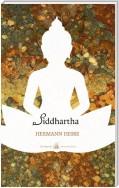Hermann Hesse

Hermann Hesse (German: [ˈhɛɐ̯man ˈhɛsə]; July 2, 1877 – August 9, 1962) was a German-Swiss poet, novelist, and painter. His best-known works include Steppenwolf, Siddhartha, and The Glass Bead Game, each of which explores an individual's search for authenticity, self-knowledge and spirituality. In 1946, he received the Nobel Prize in Literature.
Hermann Hesse was born on 2 July 1877 in the Black Forest town of Calw in Württemberg, Germany. Both of Hesse's parents served in India at a mission under the auspices of the Basel Mission, a Protestant Christian missionary society. As was usual among missionaries at the time, she was left behind in Europe at the age of four when her parents went to India. In her teens she attempted to rebel against her authoritarian father, Hermann Gundert, but finally submitted.
Hesse's father, Johannes Hesse, the son of a doctor, was born in 1847 in the Estonian town of Paide (Weissenstein). In his own way, Dr Hesse was just as tyrannical as Dr Gundert. Once Johannes Hesse was married, he moved into his father-in-law's house. Due at least in part to the crowded conditions there, in 1889 he suffered his first bout of deep depression. He continued to have such attacks of "melancholia, weeping and headaches" for the rest of his life.
Since Johannes Hesse belonged to the sizable German minority in that part of the Baltic region, which was then under the rule of the Russian Empire, his son Hermann was at birth both a citizen of the German Empire and of the Russian Empire. Hesse had five siblings, two of whom died in infancy. In 1873, the Hesse family moved to Calw, where his father worked for the Calwer Verlagsverein, a publishing house specializing in theological texts and schoolbooks. Hesse's grandfather Hermann Gundert managed the publishing house at the time, and Johannes Hesse succeeded him in 1893.
 čeština
čeština Deutsch
Deutsch français
français magyar
magyar polski
polski русский
русский English
English Azərbaycan
Azərbaycan беларуская
беларуская italiano
italiano ქართული
ქართული қазақ
қазақ Nederlands
Nederlands português
português slovenčina
slovenčina español
español 中文
中文




























